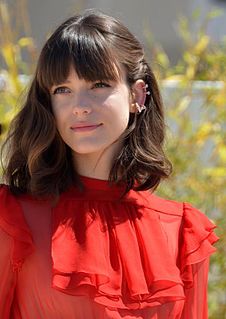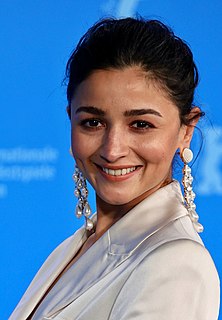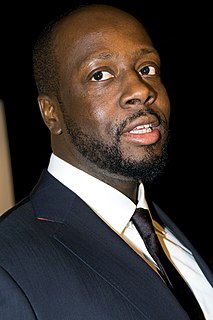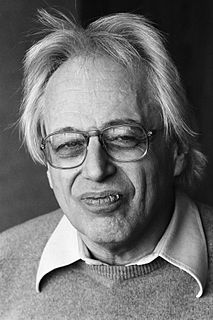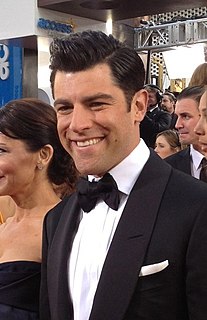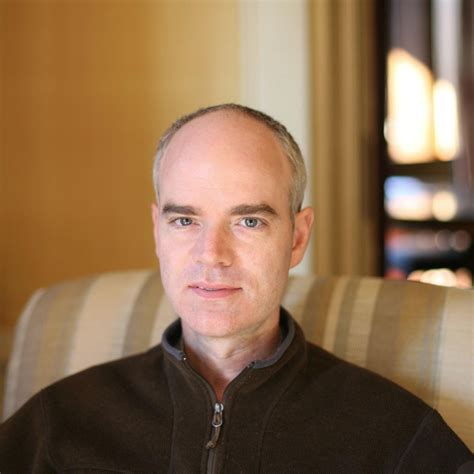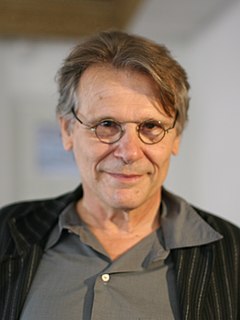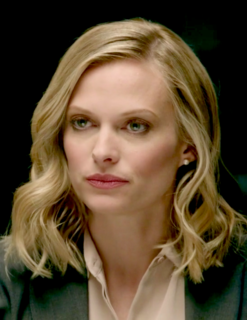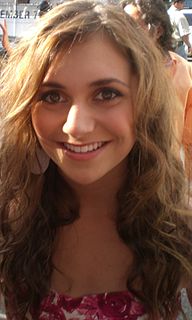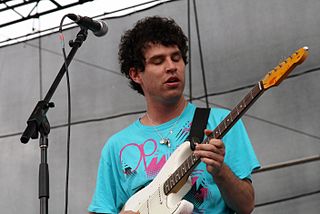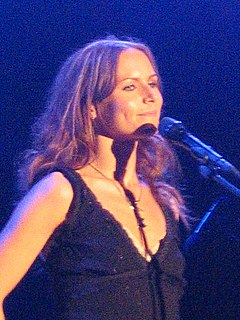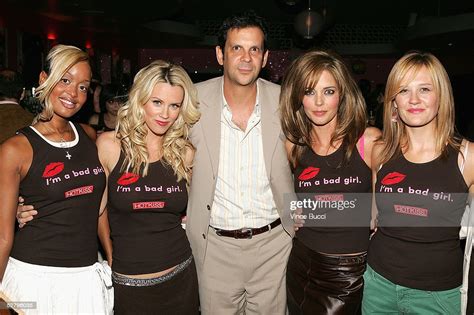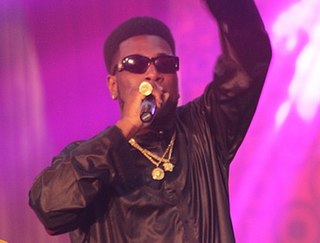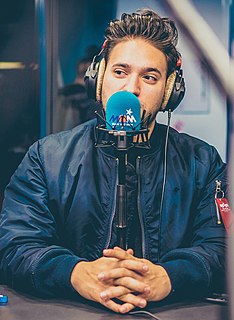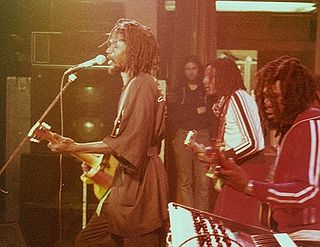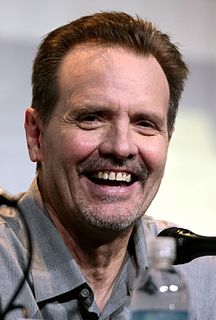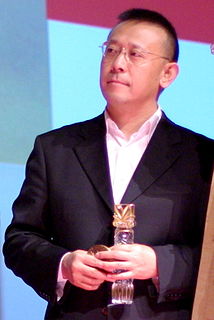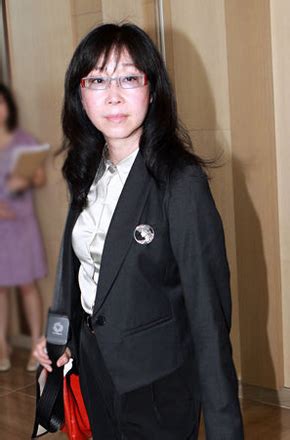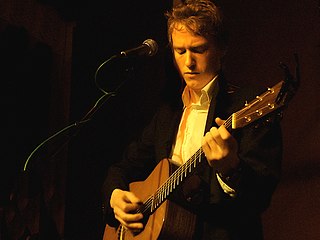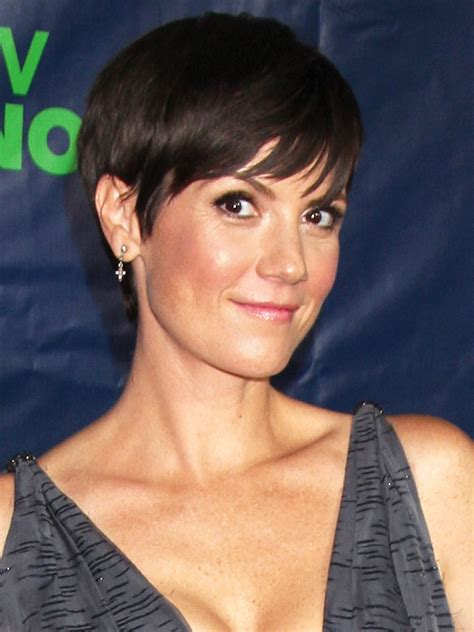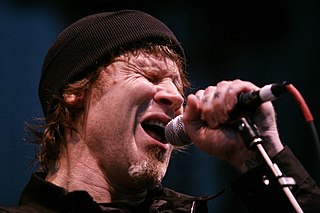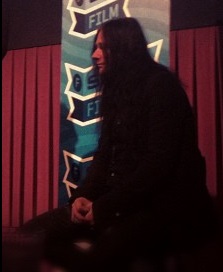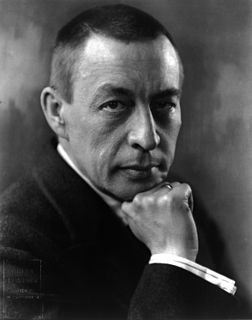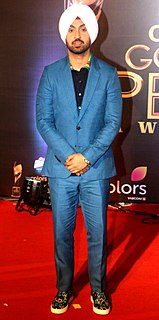Top 1200 Music Director Quotes & Sayings - Page 8
Explore popular Music Director quotes.
Last updated on December 12, 2024.
I was modeling while I was in university and my agency said, 'There's this fashion campaign, can you go?' And I didn't want to; I told him I wanted to focus on my acting, but I ended up going, kind of dragging my feet, and it turns out, the casting director for it was the casting director for Lars von Trier's new movie.
Just someone trying to shoot in 70mm deserves the nomination, and he[Quentin Tarantino] is shooting interiors, like tight interior shots, for that matter. Obviously [Quentin] is the director and demanding the shots, but all credit for the beauty of that film [Hateful Eight] goes to the director of photography.
I know what its like to direct. You become a more considerate actor. After you have directed, you understand what is going on. You can't help but think of the material as a director. You do come up with suggestions. You come up with shortcuts that you weren't aware of before. You try to be helpful to the director if he has a lot on his hands.
The dream, I think, with any project is it starts with an idea, and then somebody writes it, and the writer hopes that a director comes on and makes this piece of material visual, and both the director and writer hope that they can have actors come in and bring something to it that neither one of them expected, elevating it along the way.
But reading is different, reading is something you do. With TV, and cinema for that matter, everything's handed to you on a plate, nothing has to be worked at, they just spoon-feed you. The picture, the sound, the scenery, the atmospheric music in case you haven't understood what the director's on about... The creaking door that tells you to be stiff. You have to imagine it all when you're reading.
When I realized that nothing is perfect and no one is perfect, I was able to overcome my initial fears. I was holding myself to some weird standard that I was putting outside of myself, i.e., the director or casting director - they're not expecting perfection. I had all these strange trappings I would put myself in.
It is the best of all games for me. It frequently escapes from the pattern of sport and assumes the form of a virile ballet. It is purer than any dance because the actions of the players are not governed by music or crowded into a formula by a director. The movement is natural and unrehearsed and controlled only by the unexpected flight of the ball.
I think I'm an extremely conscientious producer and now equally as a director and it gives me the opportunity to look at the entire movie and really allow the movie to be the creative vision of the actors, the writer and myself, because I'm in charge of it from a producer and a director point of view.
To be an actor is to be ambiguous in every form, which is a very hard way to live. You represent desire: the desire of the director and the desire of the audience, even if it's a subconscious desire. If a director is to work with you for two months, he must be in love with you in some way or another.
I love the variety of films. In theater, you go into a room and the director runs the room, so you all work to his or her method. On film, if an actor or an actress is in for a day or two, the director has to get out of that actor what they need, so they have to change and adapt to that actor's technique.
It is one of the few elements in the process that a director really, really can't control: an actor's performance. If you have a director that understands that, it's comforting to an actor. You're starting the relationship more as a collaborator, rather than as an employee or some kind of a soldier trying to execute something you don't organically feel.
I certainly would never overstep my bounds and make suggestions to a director. As an actor I'm trying to fit to the best of my abilities within the director's vision, and trying to find some happy rapport where we can both bring something to it that's fresh. Usually I've been lucky in working with directors who have trusted my instincts.
You put music in categories because you need to define a sound, but when you don't play it on your so-called radio stations that claim to be R&B or jazz or whatever... All music is dance music. But when people think of dance music, they think of techno or just house. Anything you can dance to is dance music. I don't care if it's classical, funk, salsa, reggae, calypso; it's all dance music.
You want to give the director what they want, and you don't always know exactly how it goes, so you want to try it a few different ways. You have to be flexible; you have to be in collaboration with the director; you have to be versatile. But you also want to be protective of what you really believe in and how you feel it should be portrayed.
Actors, I think, are all the same. Both Korean actors and American actors are all very sensitive people, and they are all curious to know what the director thinks of them and how they are evaluated, and they try to satisfy the director. And they like it if you listen carefully to their opinions and accept them.
I had done it all in my career. I always felt, as a kid, that that's what a director needed to be. Hitchcock could do anything in my mind. He's the director. That person has to be the best actor, the best designer, the best cinematographer. Then I came to realize that isn't the case. You just need to surround yourself with the best.
I'd been making music that was intended to be like painting, in the sense that it's environmental, without the customary narrative and episodic quality that music normally has. I called this 'ambient music.' But at the same time I was trying to make visual art become more like music, in that it changed the way that music changes.
Theater is about interpretation and what an actor and what a director brings to a piece too. I'm open to it every time I work with a director and a group of actors. I have to be open to that interpretation. I'm not one of those hysterical playwrights that come and say, "This is not what I intended to do." It's one rendition of the piece.
